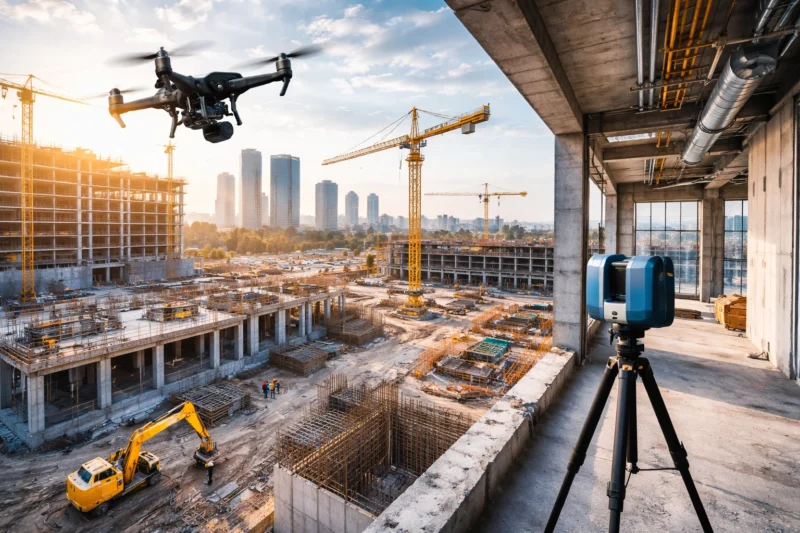Generative AI Could Reshape Construction – Is It Time to Get AI a Hard Hat?
From hospitality to education and businesses large and small, the potential for generative AI solutions is getting a lot of attention thanks to the recent success of ChatGPT. One industry prime for AI augmentation is construction. In architecture, engineering, and construction (AEC), AI technology is making it easier to understand project limitations and create solutions in real-time. Generative AI in AEC can utilize video, for example, to create efficient floor plans and develop heat maps of spaces.
Companies in the AEC tech space are taking note of the possibilities for AI efficiencies in the industry and are developing solutions to do just that. Automated building design company Augmenta, for example, recently introduced its Electrical Design Module, the first AI generative design solution for its Augment Construction Platform (ACP). This solution delivers accurate, National Electrical Code® (NEC) compliant, fully detailed 3D raceway designs, complete with a bill of materials, which all together can significantly reduce design time.
Augmenta is but one example of a company aiming to make AI tools a standard in the AEC industry. But does construction need this type of disruption? And what large-scale economic benefits would generative AI solutions bring to the sector?
Aaron Szymanski, head of product at Augmenta, believes that the time is not only right for construction disruption, but it is also long overdue.
Aaron’s Thoughts
“Construction is one of the world’s largest industries, and it’s one that’s seen some of the lowest productivity growth over the last 50 years. And at the same time, the industry is now facing historic challenges regarding labor shortages and supply chain uncertainty.
There’s a lot of interesting innovation, but it’s all happening on the construction side, the procurement, the fabrication, the insulation, etc. And really, one of the essential parts of the process that’s been untouched is the design process itself. The tools we use to design buildings haven’t fundamentally changed in the last 25 years since we adopted modern CAD systems.
And the actual process we go through hasn’t changed since using pen and paper. Designers and engineers from various traits and specialties come together to design and coordinate the various systems that go into a building. So, your plumbing, your HVAC, your structural systems, and so on. And this process is extremely tedious.
It takes a long time, it’s error-prone, and it leads to a lot of uncertainty in terms of the cost, the performance of a building, how long those systems will take to build, and so on. All this adds up. And this is important because the design process is one of the fundamental sources of the waste and inefficiency we see in construction today.
This is where generative AI comes in. This really is one of the first paradigms to come along in a very long time that offers the opportunity to fundamentally transform how we design buildings. With it, we can fully automate the design process. We can take design processes that today take months and compress them down to just hours or days, and at the same time, produce a level of detail and certainty that is effectively impossible to achieve today.
It means having complete certainty in the cost, schedule, and performance of a building from the earliest sketches of that project. It means coming into bids with fully detailed designs instead of traditional estimates. It means being able to design and evaluate different design alternatives and explore the implications of different design decisions that we’re making, whereas today, we must go through this linear design process with no room to do that exploration or optimization.
What this gets us are buildings that are built more quickly and sustainably, using less material, costing less, and performing better. They use less energy and material and produce less waste over time.
At Augmenta, we believe this is a unique opportunity to fundamentally change how the industry operates. And we’re already starting to see the impact of this. So, for example, one of our close partners, interstates, is a US-based electrical contractor. They’re starting to test out this technology, and even today, at this early stage, they’re using it to start automating the design of their electrical systems and projects.
And they’re working towards cutting their design times by up to 70% or more, all while producing designs that use less material and take less time to build than a human being would be able to develop independently.”
Article by James Kent








